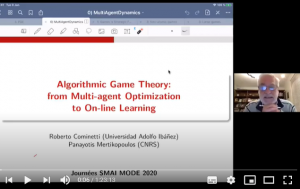Pour accéder aux vidéos des cours, cliquez sur l’image ou sur le titre
Cours de base
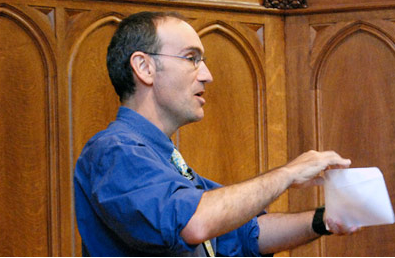
Game Theory with Professor Ben Polak
This course is an introduction to game theory and strategic thinking. Ideas such as dominance, backward induction, Nash equilibrium, evolutionary stability, commitment, credibility, asymmetric information, adverse selection, and signaling are discussed and applied to games played in class and to examples drawn from economics, politics, the movies, and elsewhere.
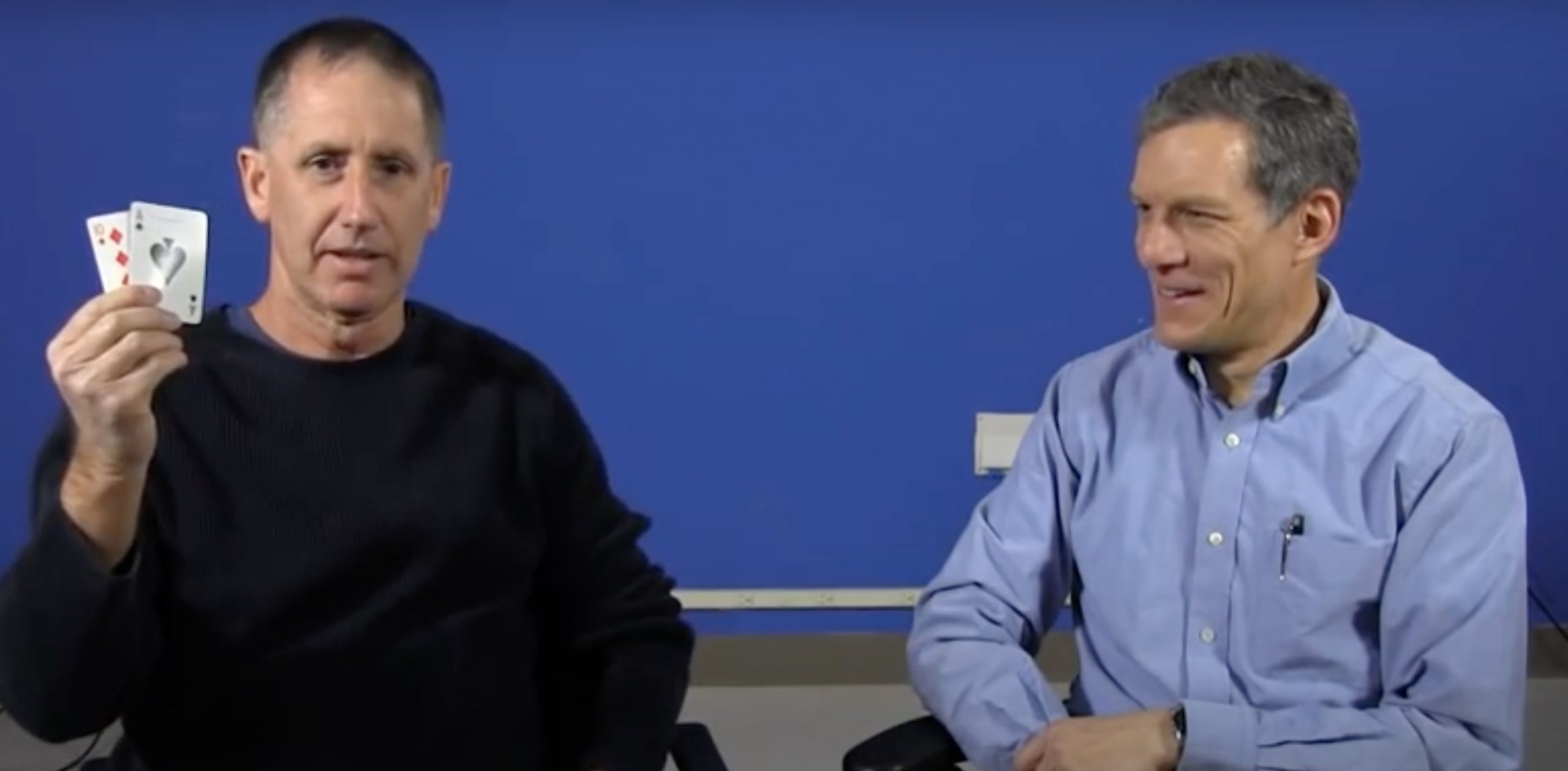
Game Theory Online
Matt Jackson, Yoav Shoham, and Kevin Leyton-Brown, Stanford University YouTube channel sharing short videos from two courses that ran in 2014 and 2015, combining slides with a view of the speaker. There are more than 70 videos in total, organized into playlists for each course topic.
Théorie des jeux algorithmique et apprentissage
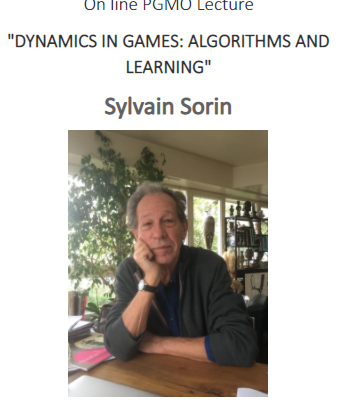
Sylvain Sorin : Dynamics in Games : Algorithms and Learning (PGMO Lecture, février 2021)
Game theory studies interactions between agents with specific aims, be they rational actors, genes, or computers. This course is intended to provide the main mathematical concepts and tools used in game theory with a particular focus on their connections to learning and convex optimization. The first part of the course deals with the basic notions: value, (Nash and Wardrop) equilibria, correlated equilibria. We will give several dynamic proofs of the minmax theorem and describe the link with Blackwell’s approachability. We will also study the connection with variational inequalities. The second part will introduce no-regret properties in on-line learning and exhibit a family of unilateral procedures satisfying this property. When applied in a game framework we will study the consequences in terms of convergence (value, correlated equilibria). We will also compare discrete and continuous time approaches and their analog in convex optimization (projected gradient, mirror descent, dual averaging). Finally we will present the main tools of stochastic approximation that allows to deal with random trajectories generated by the players.
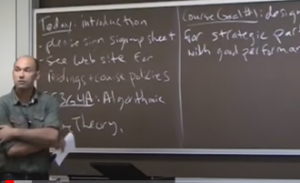
20 Video Lectures on Algorithmic Game Theory, by Tim Roughgarden
Broad survey of topics at the interface of theoretical computer science and economics. Introduction to auction and mechanism design, with an emphasis on computational efficiency and robustness. Introduction to the "price of anarchy", with applications to networks. Algorithms and complexity theory for learning and computing Nash and market equilibria. Case studies in Web search auctions, wireless spectrum auctions, matching markets, network routing, and security applications.
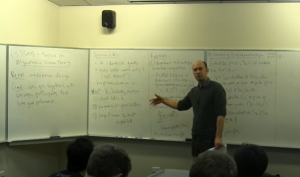
20 Video Lectures on Advanced Mechanism Design by Tim Roughgarden
Topics include: combinatorial auctions; Walrasian equilibria and the gross substitutes condition; ascending and ex post implementations; truthful approximation mechanisms; black-box reductions; simple auctions and equilibrium guarantees for them (Bayes-Nash smoothness, etc.); Border's theorem; multi-parameter revenue-maximization. ork routing, and security applications.
Microéconomie
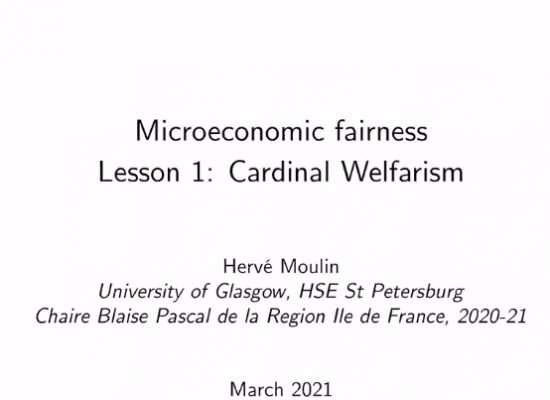
Blaise Pascal Chair Lecture: Ten Lessons on Microeconomic Fairness (Hervé Moulin)
We will discuss the recent literature on microeconomic rules of fair division with a focus on: - the critical discussion of the concepts of fairness developed by microeconomists and mathematicians - their approximation, proposed and studied by computer scientists, when we allocate truly indivisible objects - the appeal and limits of the competitive approach to fairness - the applications of the theoretical results to user-friendly platforms like Spliddit.org
Théorie du vote
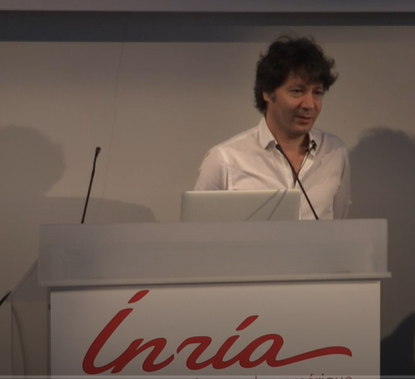
Rida Laraki : Majority judgment : a new voting method (Colloqium Jacques Morgenstein, décembre 2018)
The traditional theory of social choice offers no acceptable solution to the problems of how to elect, to judge, or to rank. The classical model —transforming the “preference lists” of individuals into a “preference list” of society— is fundamentally flawed in both theory and practice. We propose a more realistic model where voters evaluate the candidates in a common language of ordinal grades. This small change leads to an entirely new theory and method: « majority judgment ». It is at once meaningful, resists strategic manipulation, elicits honesty, and is not subject to the classical paradoxes encountered in practice, notably Condorcet’s and Arrow’s. We offer theoretical, practical, and experimental evidence—from national elections to figure skating competitions—to support the arguments.
